 Visit Elective Africa website Visit Elective Africa website
|


|
|
|
| Here is to an Exciting Healthcare Placement Experience in Africa! |
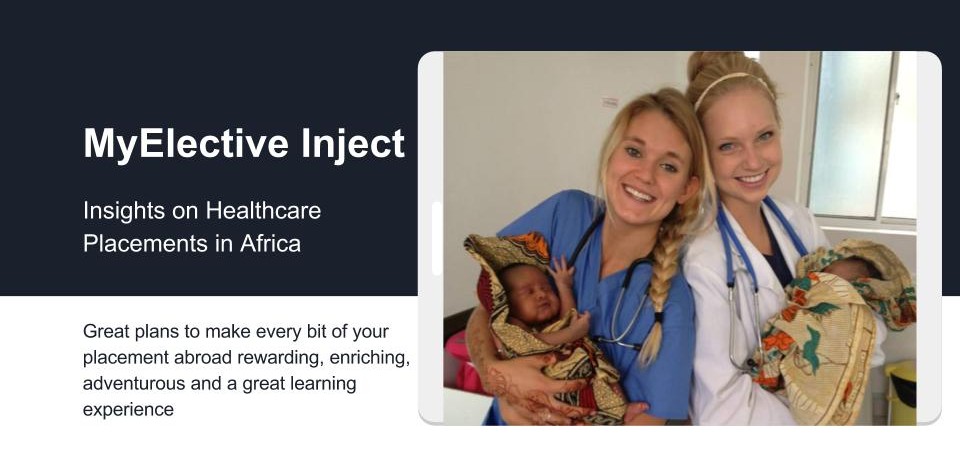 |
|
The third month is down already, amazing how time flies! With Easter holiday slowly passing by, we continually wish you and your family a Happy Easter Holiday. Being a period of enjoyment and reflection, we have outlined a few tips and topics that will fast track your planning and ensure that your placement abroad is flawless. |
| My Shadowing Experience in Tanzania |
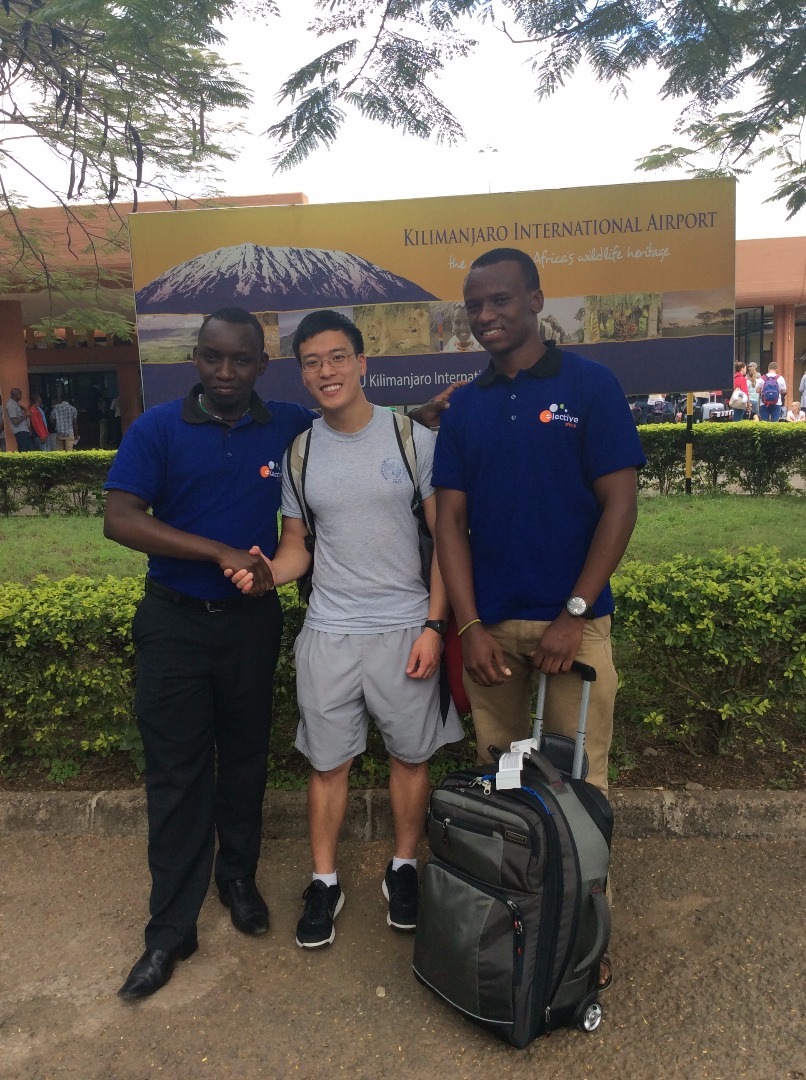 |
|
This opportunity was given to me by a partnership between my university (Princeton University) and Elective Africa. I worked in Levolosi Health Center, a public clinic in Arusha, mainly in the minor theater, where I assisted and later oversaw other performing minor procedures such as cleaning/dressing wounds, sutures, and circumcisions. The doctor in charge of the theater, Dr. Jonas, was very informative and kind and instructed us in basic skills such as changing dressings and wrapping wounds at first, and later more complicated tasks such as assisting directly in circumcisions. Since I had an 8-week internship, for the first few weeks I was mainly involved in observing the doctor, but later felt more comfortable to assist the doctor directly, such as handing tools needed during circumcisions and stopping any bleeding areas. Later the other interns and I organized a fundraiser from friends and family to raise money, which was then used to by supplies that the hospital constantly lacked, such as gloves, gauze, and surgical tools. The accommodations are quite nice, and the staff does a good job to make sure everyone is well taken care of and has all they need. For example, despite having electricity and water problems, our local coordinator would be ready to answer our phone calls and come to the residence to fix the issue. Josh Wang, a Princeton University Student, undertook Premedical Shadowing Internship at Levolosi Health Centre in Arusha, Tanzania Back to top |
| A Once in a Lifetime Medical Elective Experience in Kenya |
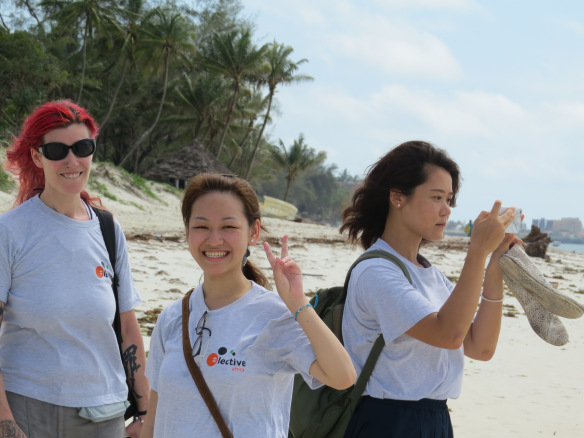 |
|
1. What are the main reasons as to why you choose Kenya as your destination of choice? In my opinion, having a clinical attachment in developing countries is the best experience in medical school. The healthcare system and diseases in developing countries are entirely different from that in developed countries. It would be the best chance for me to learn tropical disease and HIV related diseases in Kenya. If I have elective in other countries e.g. England, I could not appreciate the difference of health care facilities and resources between Hong Kong and developing countries
2. What was your general expectation as you travelled to Kenya, and as you started off your rotation? I would like to have more hand on experiences e.g. taking blood, setting intravenous line, assisting delivery and Caesarean section. In addition, I wanted to learn more about tropical disease e.g. Dengue fever and malaria. I also expected to interact with doctors in Coast Provincial General Hospital, to let them know more about the health care system in Hong Kong.
3. What are some of the key health concerns in the region you were placed for an elective? I like internal medicine so I spent most of the time in the medical ward of Coast Provincial General Hospital (CPGH). The major health concerns would be HIV associated illness. The most commonly encountered conditions would be cryptococcal meningitis and pulmonary TB. Poor compliance to antiretroviral drug is also a major concern in Kenya.
4. What are some of the experiences you had in the hospital of placement, that shaped your rotation/elective? After the elective, I have learnt more about the clinical presentation and management of various tropical diseases. Moreover, I have a deeper understanding of different classes of antiretroviral drugs, the side effect of each class and various complication of HIV infection. In addition, I had intensive hands-on exposure to various procedures especially blood taking and setting an intravenous access. Attachment in CPGH provided me chances to polish up my clinical skills prior to commencing residency.
Since Kenya is a developing country with serious corruption problem, resources in the hospital are very limited. There are limited investigations. Therefore, the clinical judgment would be the most important diagnostic tool. I have learnt how to manage and stabilize patients when an investigation is not readily available.
5. What would you say in your opinion are the challenges in the delivery of care in the hospital you were placed at? Because of the limited resources in the hospital, the result of investigation usually come late. Therefore, it delays the proper treatment of a patient. Moreover, imaging and investigation are limited in Kenya. Even the investigation is available for the patient, he/she may not be able to afford the cost of the investigation, which also significantly affect the delivery of care in the hospital.
6. How different is it from Hong Kong? In Hong Kong, investigations and imaging can be easily ordered. Hence, we tend to overlook history taking and physical examination. In CPGH, I have learnt how important the history taking and physical examination are. In addition, blood transfusion cannot be available all the time in Kenya. Hence, the hospital encourages the relatives of the patient to donate blood to the patient instead. However, there will be risk of transmission HIV and hepatitis to the patient. Therefore, in Hong Kong, blood donation from the relatives of the patients is not allowed. On the other hand, health care system in Kenya is extremely different from Hong Kong. For example, we have various sub-specialties in internal medicine and surgery, but, there is none in CPGH. Moreover, infection control is poorly done in CPGH. There is no isolation for patients who have pulmonary tuberculosis. There is no air-conditioner inside the ward and each patient is surrounded by dozens of flies. However, infection control has been a great emphasis in Hong Kong.
7. How did you find patients’ awareness and involvement in care within your placement hospital (Ethical Issues that you encountered that differs with your home country) Most patients in Kenya lack of health awareness while people in Hong Kong are always anxious about disease. There are lots of body check program and screening program in Hong Kong so that we can detect diseases in asymptomatic stage. Prevention is always better than cure. Hence, people in Hong Kong do a lot in disease prevention e.g. safe sex, vaccination and healthy lifestyle. However, people in Kenya usually seek help in an advanced stage of illness, which makes management become difficult.
8. What was your best moment during your placement in Kenya? The best moment during my placement in Kenya was my interaction with patients. Since I cannot speak Swahili well, I was too shy to talk to them. Unexpectedly, they are all very friendly and some patients could even remember me because I followed the medical ward round every day. They were willing to talk to me in English and their smile could always melt my heart.
9. Any unexpected event that you came across during your placement? Unexpectedly, I joined the case discussion organised by the physicians in the hospital. I have learnt a lot by joining the discussion, especially on the management part. I could learn how to prescribe medication in the correct dosage and choose the best drug in the class.
10. What would advise student seeking/ considering an elective abroad (Africa)? Don’t hesitate. Having attachment in Africa would be the most memorable experience in your life. Just stepping out of the comfort zone.
11. Is it something you would like to have again? I would like to come again in the future after I have become a specialist. I hope I can help more and do more for the developing countries when I gain more experience in Hong Kong.
13. Any Swahili word that you can remember? I can remember words which can be used in daily life: Jambo, Asante, Karibu, Pole, Sawa, Wapi, Ngapi
14. What will you miss most about Kenya? I will miss the medical students and doctors in Kenya because they are all very friendly. They were very helpful and taught me a lot during my attachment. Moreover, I will miss Elective Africa especially Phares and Benson. They have arranged our trip and attachment very well. Wong Chrisity, a medical student from the University of Hong Kong undertook her medical elective placement at Coast Provincial General Hospital in Mombasa, Kenya. Back to top |
| From Us to You |
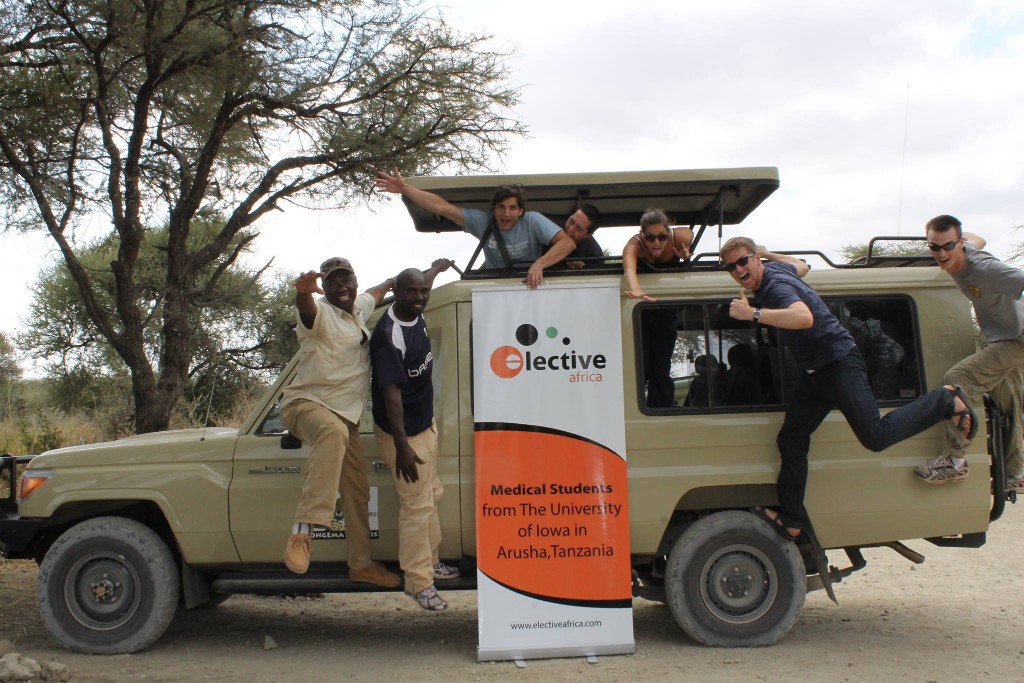 |
|
Joining other Students Travelling on a Budget? Your Accommodation Abroad |
| 9 Misconceptions about Travelling to Africa |
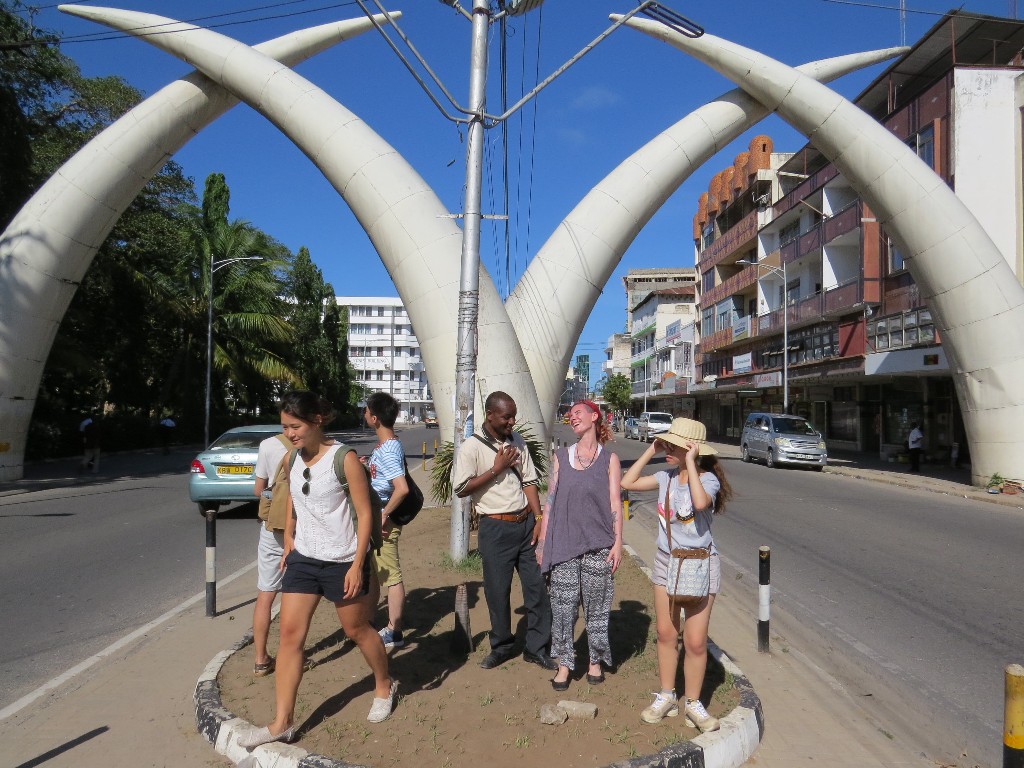 |
|
How many misconceptions have you heard about travelling to Africa? With no doubts, they are a lot. While it may be a dream of a lifetime to anyone living outside Africa to travel there, there are many misconceptions which you have heard about Africa which are certainly not true and some may induce fear to your decision to travelling to Africa. Below are some of the misconceptions we’ve heard about Africa;
It may surprise you to know that there are more than a dozen of African countries where English is the official language. Some of them are Zimbabwe, Uganda, Zambia, Botswana, Namibia, Kenya, Sierra Leone, Liberia, South Africa, and Nigeria. So do Africans speak English? Absolutely yes. Though it may not be the official language for all the countries. Most countries took after their colonial master’s language you will therefore find in some parts of Africa, French and Portuguese as the Official language.
Some people also assume that all African countries are poor and are always in need of aids and donations. Did you know that South Africa is a gold mining country, that countries like Kenya, Tanzania, Seychelles just to mention a few are among the leading tourism destinations in the world and have some of the best and world-class hotels and attractions? Do you know that West African countries like Nigeria, Niger and Libya just to mention a few produce and export oil to the world? Do you also know that Kenya which is in East Africa is a leading exporter of one of the world’s finest tea and coffee?In as much as many of the countries are still developing, the poverty levels are not as extreme.
With tribal, political and terrorism stories running through the news all time, most people now fear travelling to Africa, thinking it is one of the most dangerous places to be. We all know that bad news sells, so this should not hinder you from travelling to Africa. In fact, 95% of the countries are peaceful and stable. Kenya, for example, is among the leading world travel destinations in the world and thousands of tourist are visiting the country yearly. This also applies to other countries like Tanzania and South Africa. Talk to people who have travelled before and get to know how their experience was like before fear puts you back
This is quite an interesting misconception and especially to me because in the course of my placement advising years in Elective Africa, most participants coming for the programs are always very concerned with the vaccines they are supposed to take while in Africa. Vaccines are always good as a preventive measure for contracting diseases but this does not mean that when you travel to Africa you will most likely get sick. There are also cases of tropical diseases like Malaria and epidemics such as HIV/AIDS. Even with limited resources within most of the healthcare systems in African countries, it may interest you to know that there are very good and well-structured hospitals which are either government or privately owned that provide healthcare services to the population.
Interesting, right? This is very true that most people think of Africa as a very bushy place or rather a wilderness, where people live and behave like animals. You will be surprised by some of the big cities which are in most of the Africa countries and even the level of literacy of the people in most of these countries. Most people also prefer to travel abroad only to come and live in African countries either for their studies or even after retiring. They find Africa quite a good place to rest There are some communities though who still live in the wilderness e.g Maasai. They are literate but it is their way of life. Africa never existed before the colonial periods. It is a common misconception too that Africa has no history and it only came to exist during and after the pre-colonial era. However, this is not true as Africa has its history way before the colonial period. Today there are many historical sites and museums which give a history and even evidence of the existence of Africa many years ago before it was even discovered by the colonisers. By visiting these historical places like the Gedi ruins and Fort Jesus, you will learn more of how the Africa people existed way before including their way of dressing, day to day lifestyles, traditions, eating habits just to mention a few. There are even communities like the Khoikhoi people in the Kalahari desert who uphold their lifestyles up to date. Some Africa communities also have their myths of origin. In many Bantu myths for example; the first man is believed to have come from a plant and other traditions believe the first man to have come from a cave or a hole e.g, According to the Zulu of South Africa the first man is believed to have come from a bamboo stem
There are people even up to date when they hear of the word Africa, think of it as one country. Africa is a continent, the same way we have Europe, Australia, Asia, America. Africa has 54 countries each of them with its own government. There are countries that have the monarch system of government, where a King is the leader, and the position is hereditary and there are some with the parliamentary system, where elections are held and leaders elected.
This is one of the most interesting misconceptions that I have come across about Africa. Africa is a diverse continent with some countries having different races. For instance in Kenyan Coast, you will meet the Swahili people, majority of them are light skinned due to the Arabic lineage they came from. Africa has a diversity of languages. It may be interesting to know that French is widely spoken in West Africa. A country like Kenya has over 42 ethnic tribes all speaking different languages and a country like South Africa has over 11 different tribes
This sounds quite interesting too. The name Africa sounds like a desert place where animals live freely and perhaps even the people live and interact with the animals. However, this is not true at all and even with the results of globalisation, most people are now starting to understand that Africa is a land of diverse vegetation all in different parts and countries. The wild animals also do not roam freely as they are enclosed in game parks or game reserves and to note is that they are a major attraction to tourists all over the world. Now you know some facts about Africa. Make it one of your dream list wishes to travel to this beautiful continent and explore what mother nature has to offer Back to top |
| 4 Prevalent Conditions affecting Women Health in Kenya |
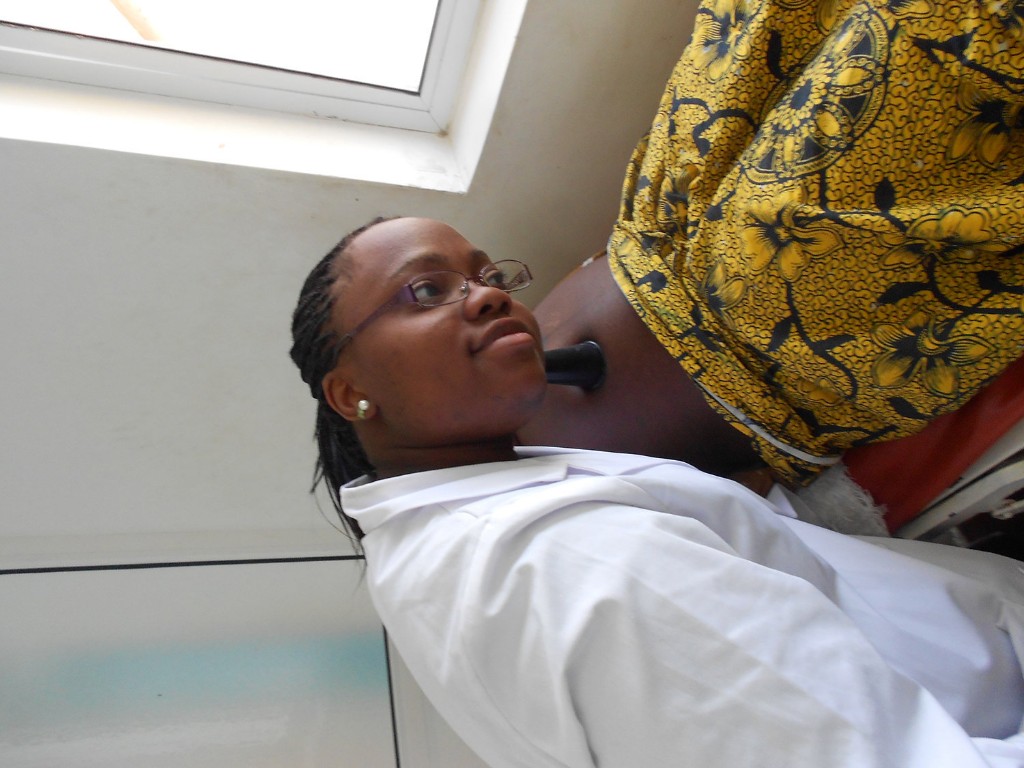 |
|
The obstetrics & Gynecology department often dubbed the women health department is one of the most popular departments for medical students and other health profession students seeking to have an international experience. As one contemplates travelling abroad for the programs it is important to have some details about some of the conditions affecting women in the destinations of choice. If you choose to travel to Kenya, here are some prevalent conditions affecting women in Kenya
According to WHO for every 100,000 live births in Kenya , 362 women die with most of these deaths being as a result of insufficient preventive measures and timely interventions. This however does not mean that nothing has been done to reduce this number. Kenya has made strides to improve women health and especially maternal health. Government and private entities such as Beyond Zero Campaign an initiative by the state’s first lady are working to ensure especially that maternal deaths are eliminated. While not all women may get skilled care at childbirth, 6 out of 10 can now receive skilled care at childbirth and over half get postnatal care. Despite these improvements at the national level, challenges remain in addressing the geographical, rural/urban, socioeconomic and educational disparities and inequities. In particular, education and wealth are strongly associated with service utilization. Only about half of mothers residing in rural areas received skilled care or delivered in a health facility compared to 82 percent of mothers residing in urban areas. One of the major causes of maternal death is obstetric haemorrhage contributing to about 40% of all death followed by hypertensive disorders (15%) and pregnancy related infections (10%). Complications from abortion are also some of the attributors of hospitalisation and death among Kenya women. These include fever, sepsis, shock and organ failure.
Malaria is among the leading causes of morbidity in Kenya with pregnant women and children under five being at greater risk of contracting the disease. Statistics by the Kenya National Bureau of Statistics (KNBS) shows that 16,000 people died of malaria in 2016 making it the 2nd highest cause of death. Malaria is prevalent in areas around Lake Victoria and the coastal Kenya. This however doesn’t exempt other regions in Kenya as research indicates that 70% of the population is at risk .
In Kenya, cancer is the third leading cause of death after infectious diseases and cardiovascular diseases (National Cancer Control Strategy, 2017). In women, breast cancer and cervical cancer are the most prevalent claiming, According to the Kenya Demographic Health Survey (KDHS) 2014, the annual number of cervical cancer cases is 4,802 and annual number of deaths is 2,451. Most cancer cases however go undiagnosed, while those diagnosed are done in the late stages. This has been attributed majorly to lack of awareness, inadequate diagnostic and treatment facilities and the huge cost of its treatment. There are currently a few numbers of Oncologists with about 20 for a population of over 40 million people. Currently the 3 government facilities offering Cancer diagnosis and services are Kenyatta National Hospital, Coast Provincial General Hospital and Moi Teaching and Referral Hospital. The rest are mission and private hospital.
The high burden of HIV and AIDS in Kenya accounts for an estimated 29 per cent of annual adult deaths, 20 percent of maternal mortality, and 15 percent of deaths of children under the age of five. Out of 1,517, 700 Kenyans living with HIV, 775,939 are women. Worldwide, Women account for more than half the number of people living with HIV. Young women (10-24 years old) are twice as likely to acquire HIV as young men the same age. HIV is most often transmitted from a mother to her child during pregnancy, delivery, and breastfeeding, providing antiretroviral medicines to mothers throughout the breastfeeding period helps in lowering the chances of transmission to the child. These are just some of the some of the conditions affecting women; you will however encounter other situations like Female Genital Mutilation, domestic violence just to mention a few. You will see how culture plays a role in women health. There are some harmful cultural practices that forbids access to maternal healthcare, there are some communities that still practice FGM and there are some which a third party consent is the one to determine whether a woman gives birth in the hospital or not. You will also learn how social class plays a role in women health for instance a wealthy woman is four times as likely to deliver in health facility with a skilled birth attendant, this is not always the case with poorer women. On the contrary, they tend to receive poorer quality of maternal healthcare (Sara Hadin, 2017) And even as we #PressforProgress, travel abroad to learn and play a role in improving women health. Back to top |
| Your House Abroad |
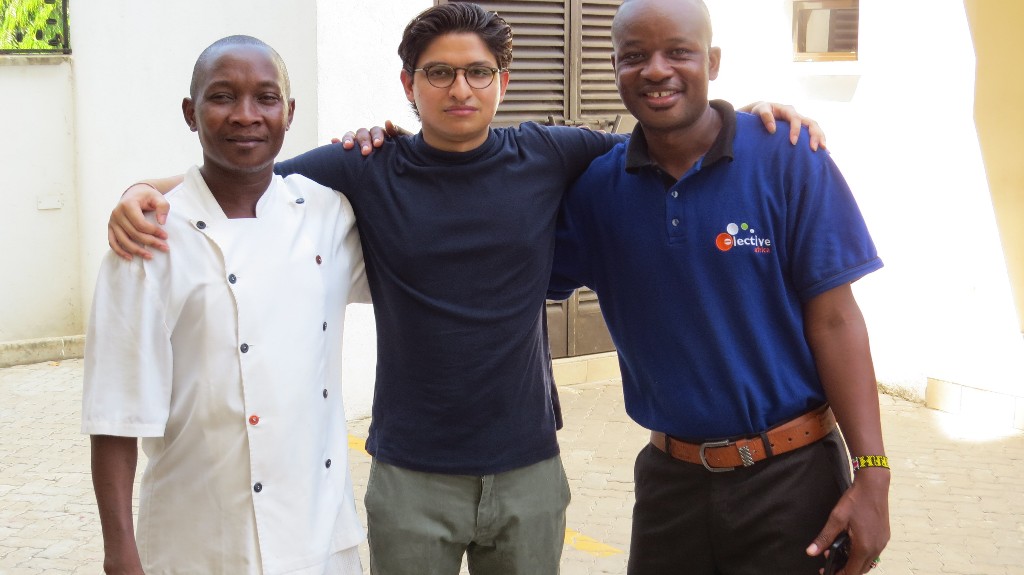 |
|
Travelling abroad has never been this fun and nice. The thought of living with completely strange people, learning a new language, trying new food and walking different street from what you are accustomed to is a thrilling experience. It may be scary at first but once you get used to it and are open minded, you will make memories that will last a lifetime. Accommodation is one of the core part of our placement program in Africa. We, therefore, strive to ensure that we select accommodation in locations not only closer to your placement hospital but also in safe and secure neighbourhoods. So what is it you need t know about your house abroad with EA? First and foremost, the accommodation is shared student houses. A room is shared among 2 – 3 participants of the same gender. You will also the kitchen and living room to yourself. With a cable TV, you will be able to touch base with what is happening back in your country and in the rest of the world. The interesting part about this is, you will get to interact with different people from different countries and hence able to learn from different cultures. You may make lifetime relations, who knows? Take advantage of this and have fun. Single accommodations are also available upon request. Your House Abroad is also in proximity to your placement hospital and other important amenities like shopping malls, beach, entertainment joints etc. Most if not all of our student houses are approximately 20-30 minutes drive to the clinical site. This is in an effort to ensure that you report to the hospital on time to do rotations and other healthcare services. Travelling abroad comes with its own challenges and that is why we have a team of fun-loving and passionate staff to ensure that you are in a friendly and supportive environment. You will be given a local area orientation upon arrival to familiarize you with your placement location. With 24/7 on ground support, the operations coordinator ensures that you have an enjoyable and comfortable stay during your whole placement period. You will have a chef, who will be preparing your meals. Don’t miss to try new cuisine and even learn some new recipes. While on placement, issues may arise and don’t worry because our team is very approachable and will ensure your issues are solved in a timely manner. This also applies to timely repairs and maintenance if any. Have questions? You can send us an email and also Join in our webinar on the 28th of March that will be giving you a sneak peek of what to expect while abroad. Back to top |
| What is Stopping You? |
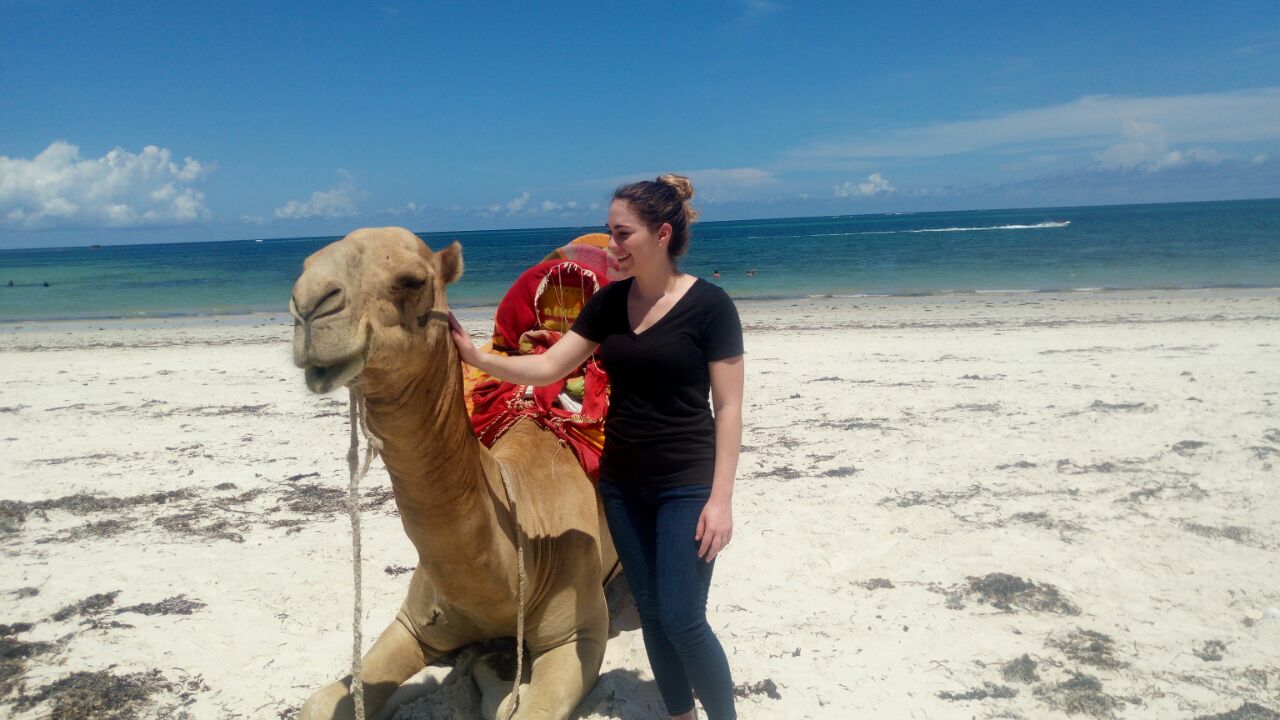 |
|
There is so much value in placements abroad and even as you consider travelling to Africa, we can guarantee we'll always be there to ensure you maximize on your elective/pre-health shadowing experience abroad. Reach Out to our Placement Advisors
Quote for the Month Do not let what you cannot do tear from your hands what you can ~ Ashanti Proverb Ashanti people are mainly found in Ghana in West Africa Back to top |
|
|

 3 2018
3 2018